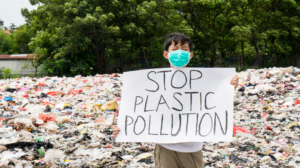Can We Recycle Plastic Sustainably?
Since 1950, humans have produced over 8.3 billion metric tons of plastic. Out of this staggering amount, only around 9 percent has been recycled — the rest is filling up landfills and directly contaminating nature.
While recycling is on the rise today, it’s clear that society still has a long way to go to achieve greater plastic sustainability. Unfortunately, the ever-growing consumption rate is a factor halting this process.Every minute, over 1 million plastic bottles are sold, and the overall demand for single-use plastics remains high.
We’ve adopted the notion that once we do our part and throw the plastic product in the right recycling bin, someone else takes care of the rest. But what if that’s not the case? As we look toward the future, what can we do as individuals to advance sustainable plastic recycling?
Reduce, Reuse, Recycle
When China stopped accepting recyclables in 2018, many countries with insatiable appetites for plastics were left looking for alternatives.
The unhindered consumption of plastics, together with the radical drop in demand, has shown us that in many cases, there’s a lack of local solutions and inadequate waste management infrastructure.
That’s why the best thing consumers can do is follow the “3Rs” (reduce-reuse-recycle). Ideally, we would buy as little single-use plastic as possible and look towards zero-waste solutions. We can also consciously choose the types of plastics that have a higher potential to be reusable or recycled. For instance, plastic coffee cups contain various multi-material layers, making them difficult to be recycled — we can refer to the number at the bottom to make the distinction.
Take (Collective) Action
Apart from understanding where and which kinds of plastics to recycle, one of the most prominent obstacles to effective recycling is contamination.
That’s why we should take collective action to call for more robust sorting, classification, and infrastructure locally. Building functional systems could offer more flexible solutions to problems like contamination. It could also ensure that individual recycling efforts actually produce tangible results.
Support Innovative Solutions
There are many actors, both startups and established players, looking to advance plastic recycling through innovative solutions. Whether it’s those turning plastic back to virgin material, or those designing smart trash cans to bring greater transparency into waste management, supporting these actors helps raise awareness of both the current recycling realities and the solutions they’re promoting.
Apart from the macro solutions, there are also inventions to try out at the household level, such as laundry balls and filters for washing machines that capture microplastics from clothes that would otherwise be left to contaminate water sources.
While individual actions form a great foundation for a sustainable future, we have reached a point where collective action is necessary to make true change. What can we do as individual consumers?
We can start by supporting innovative players and demanding accountability and optimized waste management at the community level. By doing so, we will be able to move towards better plastic recycling models that will actually make an impact.



